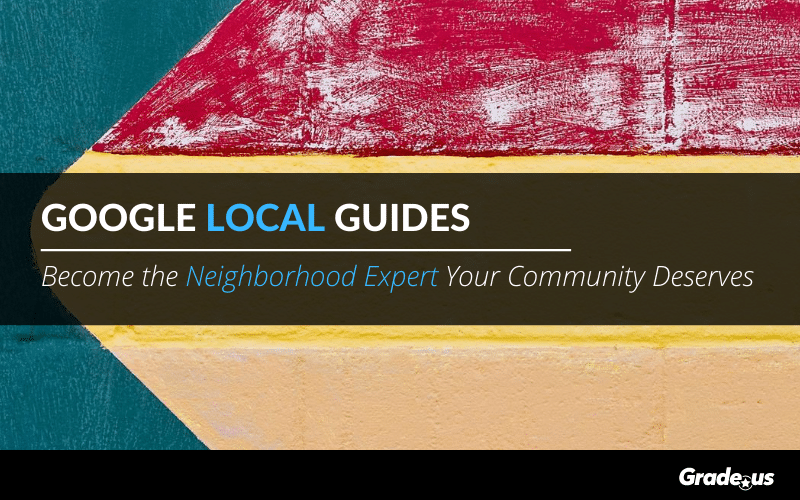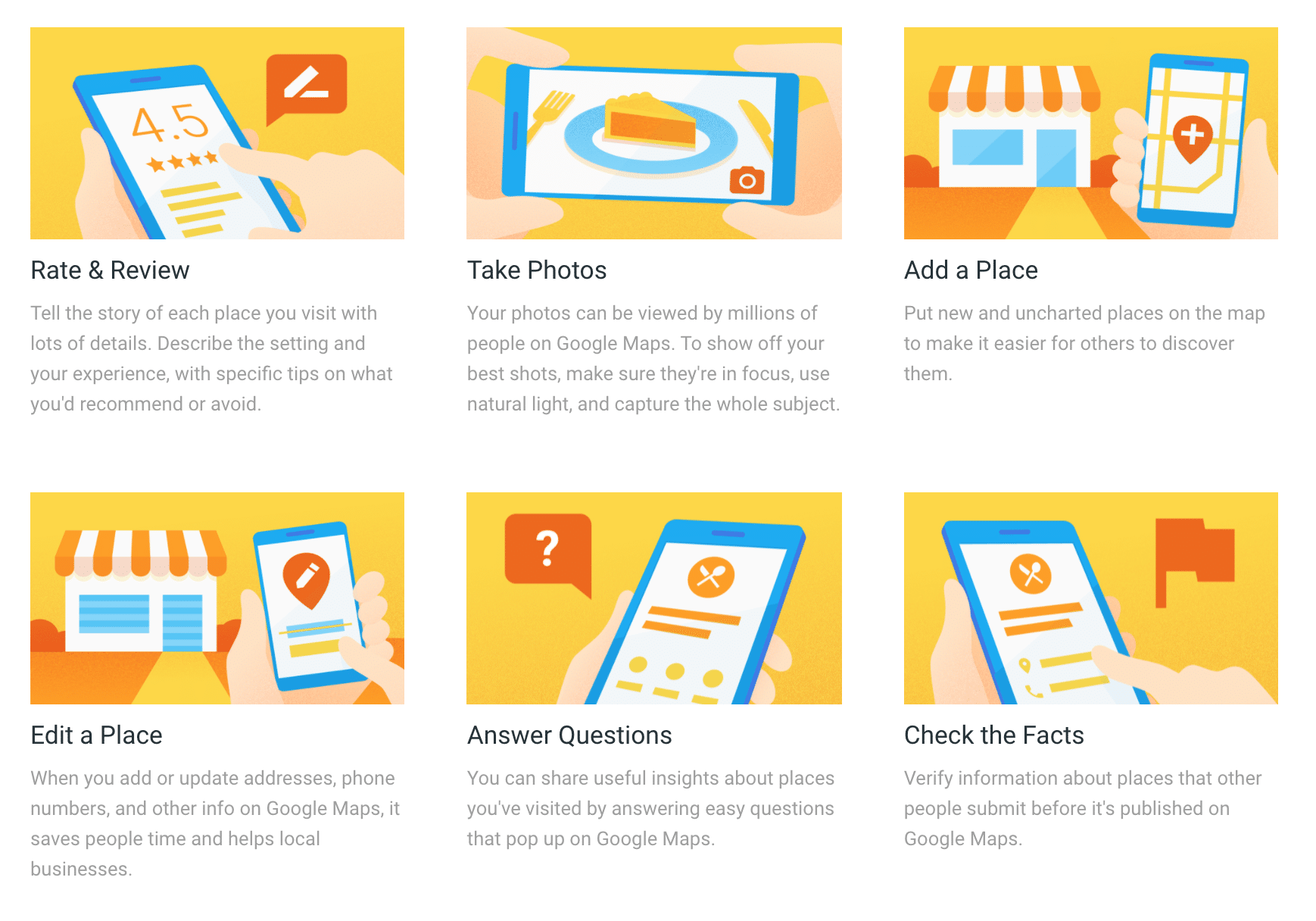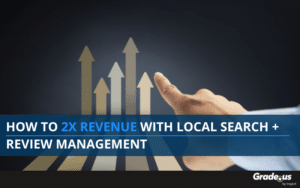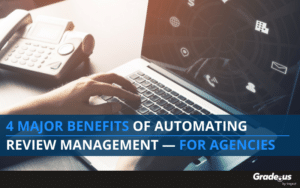Nothing says digital authority these days more than something Google related. In early 2015, they released the Google Local Guides program. This gamified local search, allowing anyone to contribute Google Maps directly. Today, the Local Guides program has matured into a large and sizeable community.
Spanning the world, Local Guides has emerged again slowly and carefully where the pandemic allows to bring a sense of connection to neighborhoods. Even in the U.S., the program continues on virtually.
Google uses points and occasional perks to motivate its users.
Users can contribute to businesses, locations, information, and photos to Google Maps. They can also answer questions, choose attributes, edit places, check facts, and write reviews. Every contribution is worth points, which Google uses as an indicator to offer a specific level of intermittent perks.
Here’s a 2 min. explanation of their program.
This is a wonderful opportunity for consultants and local digital marketing agencies.
As a local guide, you can plant seeds for your business, contribute information that’s helpful for others, and establish your local authority with Google Local Guide Meetups. You can also let business owners know that you’ve helped them with their listing by correcting business info or sharing high-quality photos to represent their business.
But first, let’s take a look at the framework of the Google Local Guides Program.
Table of Contents
Get the Reputation You Deserve with Grade.us
How to become a Local Guide on Google Maps
All you need to sign up as a Local Guide is a free Google account. The Local Guide program doesn’t require any money to sign up. Sumedhh Bilgi, a Local Guide takes you through the sign-up process.
Short on time?
Here’s a brief walkthrough to help you get started in three minutes or less.
- Create your Google account if you don’t already have one.
- Then visit: https://www.google.com/local/guides/signup on your device. It should look like this:
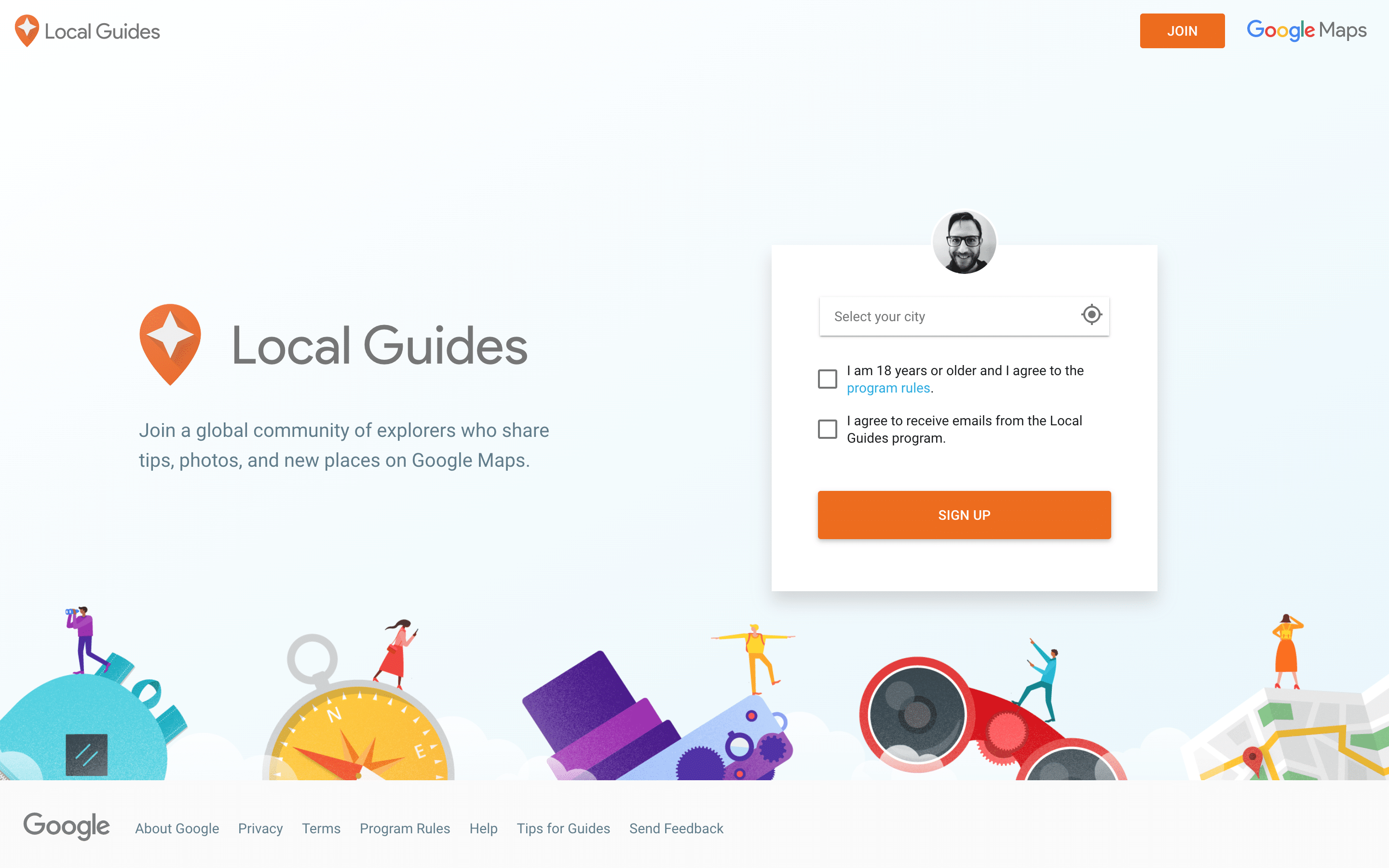
- Make sure your city is correct and sign up.
You’re all set!
If you already have Google Maps installed on your Android smartphone or mobile device, the sign-up process is even easier.
- Open Google Maps.
- Scroll to the bottom and click “Contribute.”

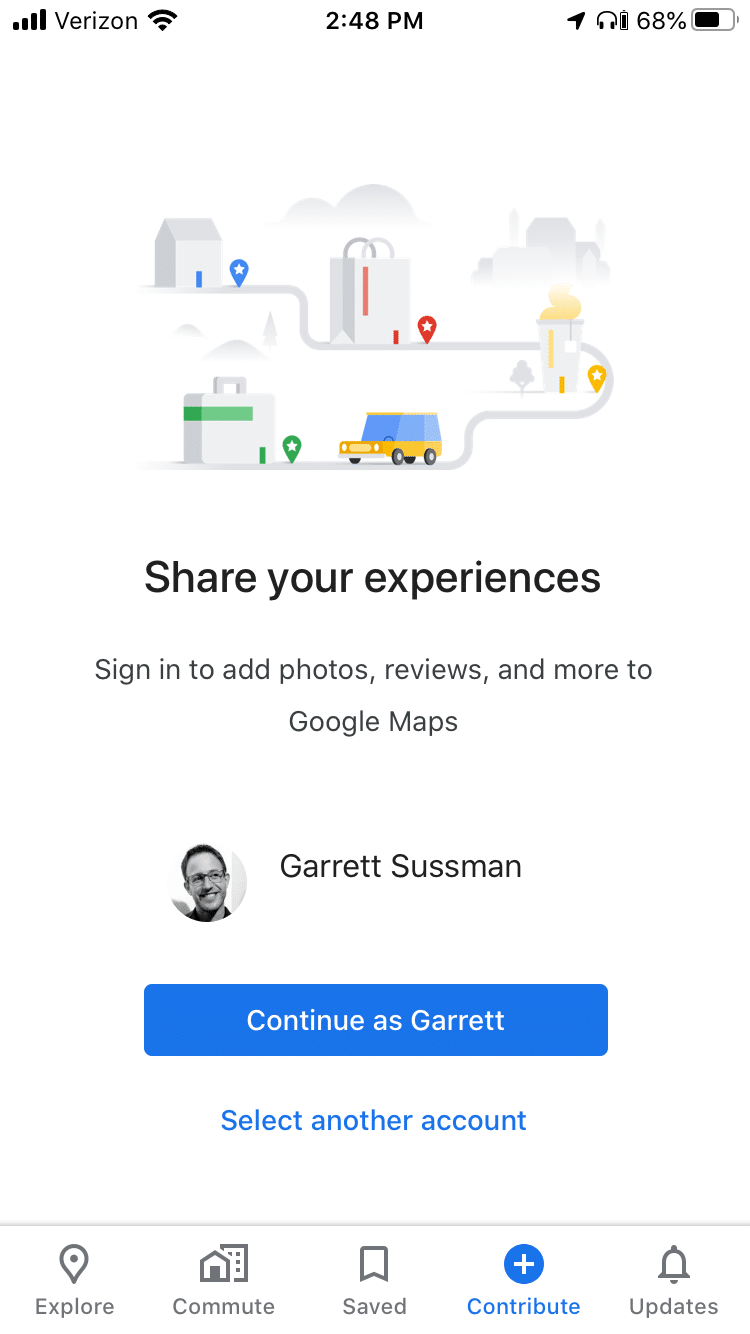
Next, select the type of contribution you’d like to make!
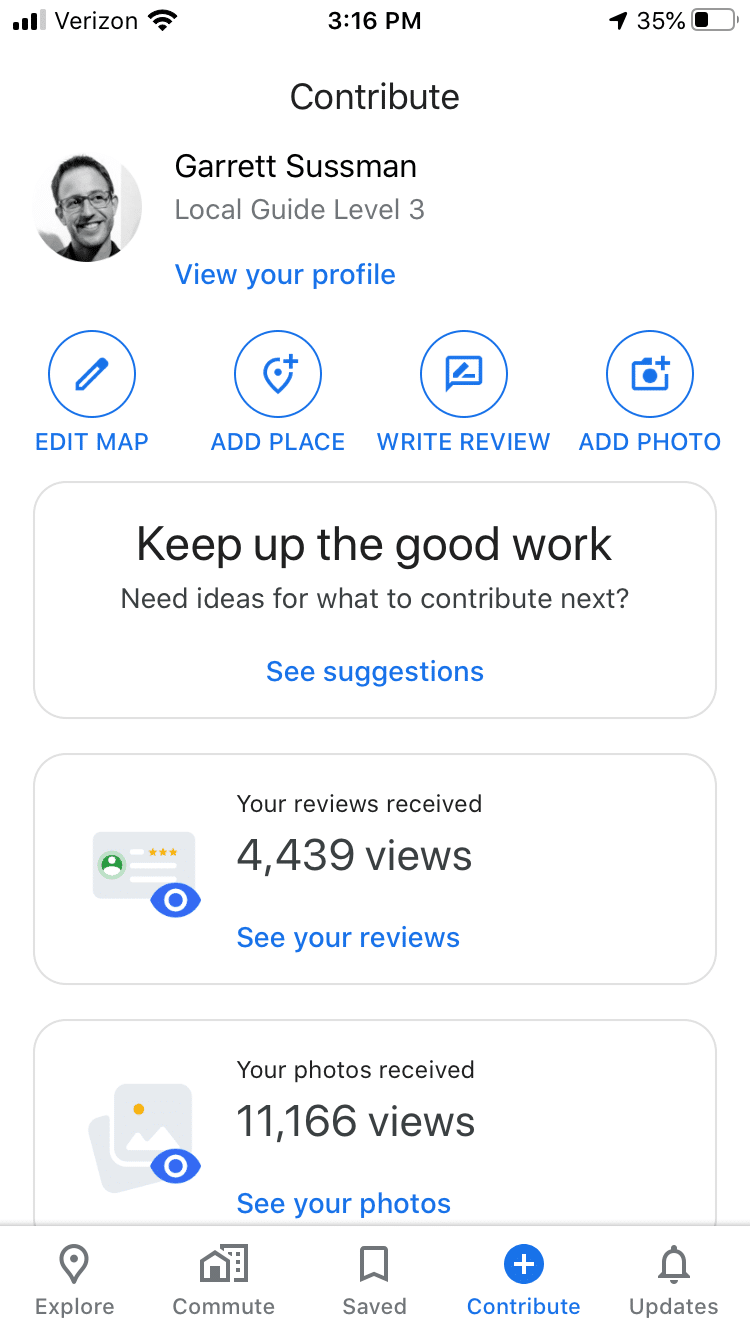
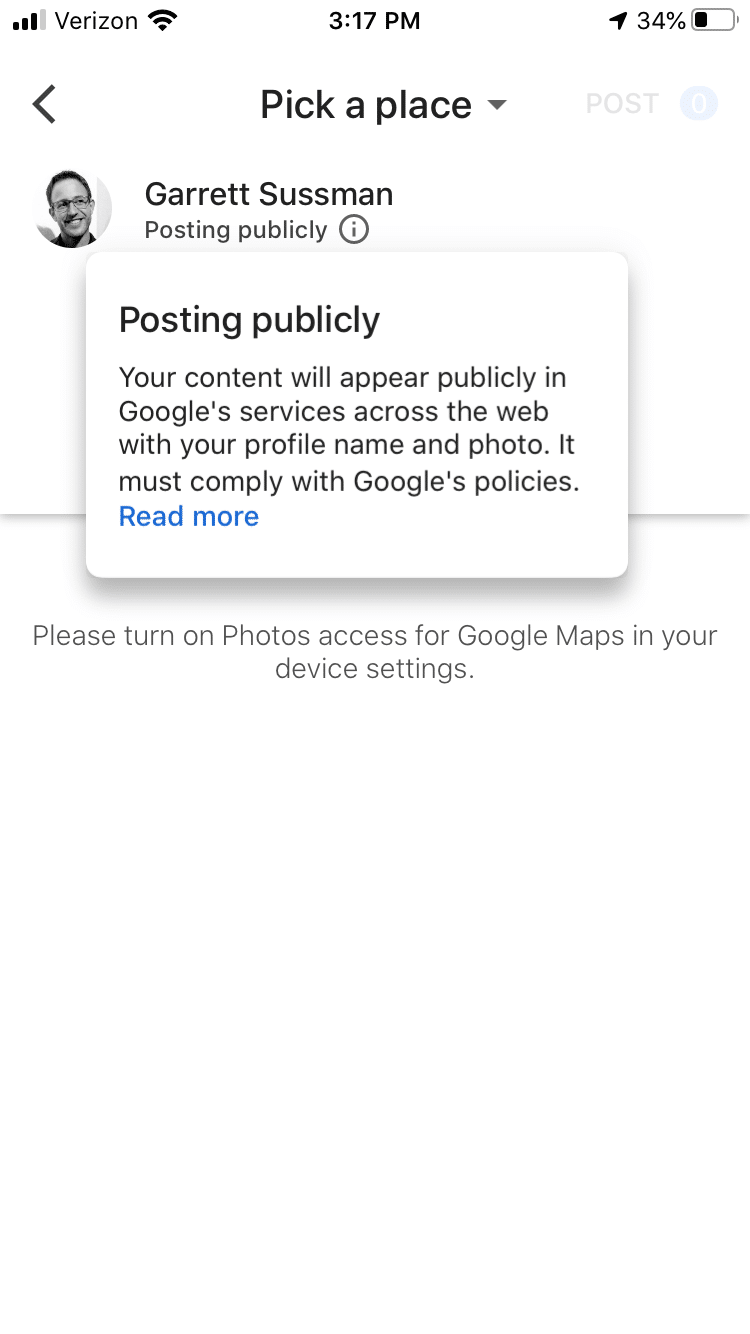
How to Earn Local Guide Points and Level Up
The Local Guides Program incentivizes users to move up levels by accumulating points by contributing content to Google Maps. There are 14 ways to earn points as a local guide. Here’s a breakdown of the points you’ll receive for each contribution as a Local Guide.
You already have your Google Local Guides Account set up so you can begin earning points immediately.
Share reviews
Google reviews significantly impact small businesses. Earn Local Guide points by letting others know about the pros and cons of the places you visit. Remember when writing reviews to address specific aspects of the business for the sake of being helpful.
In order for your reviews to earn points, they do need to have some substance to them. If you’re only leaving star ratings or one-word reviews, the Local Guide Program may dock you points.
Share ratings
Ratings provide customers with additional details on a specific aspect of a business. For example, details like rooms, service, or location, give the customers the additional facets of information they need.
Share photos and videos
Who’s got a flair for photography? Scratch your inner photographer by uploading useful and vibrant photos to the locations you visit. According to users on the Local Guides’ subreddit, some Local Guides have had their photos viewed millions of times.
If you take an excellent photo, your image could end up being the primary image on a local business Google listing.
Pro-Tip: For creative local search firms, having your photo featured on a prospective client’s business listing would be an excellent opportunity to establish your authority as a local search expert and get your foot in the door.
You can add or remove these photos at any time; however, you can’t add photos or videos to addresses.
Add photo tags
When you have photos in Google Maps, you’ll be asked to tag these and add a short description (one to three words). Doing this provides you with additional points; it’s a helpful way to provide users with more information.
Respond to Q&As
With Q&A, you can share useful insights about places you’ve visited by answering easy questions from other users that pop up on Google Maps.
Edit a place
When you add or update addresses, phone numbers, and other info on Google Maps, it saves people time and helps local businesses.
Place added
Adding new and uncharted locations on the map to make it easier for others to discover them. You’d be surprised how many businesses still have not been listed on Google Maps. Many times, the business owner doesn’t even think to claim their listing. They may not understand how search engines work at all, and the value of being listed.
Pro-tip: If you add a business, via the Google Local Guide program, reach out to the small business and let them know!
They may be confused, but simply putting them on the map (literally), and explaining how a listing will help new customers find them can lead to a win. They might even become a new client.
Fix information
You can add or fix a place, providing users with accurate, up-to-date information. Adding a business to the map can have the most important impact on small businesses. Still, if their business information hasn’t been updated or is incorrect, they could be upsetting their customers. Put on your good Samaritan hat, and save future customers from any misinformation that could ruin their opinion of the business.
Pro-Tip: Check for hours of operation on the business listing (including Holidays). Frequently businesses forego this info or never update it. Simply editing the hours of operations could surprise the business owner and reveal your digital marketing skills.
Fact checked
As a fact-checker, you can verify information about places that other people submit before it’s published and live on Google Maps.
What about Local Guide Levels?
There are 10 Local Guide levels. As you move up levels, you earn a variety of badges, and you may receive the occasional perks. Google states that “higher levels also lead to special perks and early access to Google features.”
Today, perks are tokens of appreciation, they aren’t earned. Verify that your email settings are correct, so these perk offers are sent to the right address. Read more at how to get organized for receiving perks here.
Google offers what’s called “regional perks” and “global perks.” An example of a regional perk would be movie tickets with a specific company (i.e., AMC), partnering with Google. An example of a global perk would be an extended trial period for Google One Drive (storage).
Why Sign Up for Google Local Guides?
According to Google, there are 120 million local guides across 24,000 cities and towns. It makes sense then that Google has changed its stance on the perks that are offered. Local guides no longer earn perks and rewards; they’re provided periodically as gifts.
Here’s what Stephen Abraham, a content moderator with Local Guides Connect has to say about Local Guide perks.
“Just an important note that Google Local Guides is a volunteer only program. And there is no payment or compensation in any way for contributions, financially or physically. These perks serves just as a token of appreciation for our participation & contributions, and should not be taken as compensation in any way. There is no commitment or guarantee for any future perks. Our contributions helps everyone else around the world and in this same way, we also benefit from contributions of others.”
It’s an easy way to serve those in your community through some lightweight volunteer work. What if you’re looking for something a bit more rewarding?
Becoming a local guide is a conversation starter.
If you’re a consultant, local SEO, or digital marketing agency, it just makes dollars and cents. It gets your foot in the door with prospective clients, giving you a chance to demonstrate the value you provide. If prospects are interested in learning more about Google Maps, you have the opening you need to educate and inform your prospect.
There are a variety of benefits.
The three main benefits that result in being an active Google Local Guide are:
- Google related perks, information, and early-bird access to their new features and products
- A networking opportunity and conversation starter with potential prospects
- Networking opportunities and support from the Local Guide Community
What do the Local SEO Experts (and Kevin Indig) think about Google Local Guides?
My understanding of it was that it was always something to help them get increased review counts through gamification etc, and to model Yelp elite for parity. According to a preso I have seen from our mutual friend Mr. Blumenthal, I think Google is more or less ahead of Yelp in review gain across the board these days. So I’m not sure there really is any gain for the program with them. In terms of any potential negatives, like most Google things, there are lots of very spammy “Local Guides” that are selling their services. Not really sure how to better improve the program in a way that differentiates it from the Top Contributor/Product Expert Program.

Local Guides provides Google with a way to gamefy reviews so that folks that are already involved with their communities and writing reviews can “strive” for the next level.It has been very successful at growing Google reviews, getting Google Q & A answered and encouraging more photos.The value largely accrues to Google and to other searchers.As to secret insights, I don’t have many. But it does appear that as a Local Guide does more edits and adds more reviews and their points and levels increase, their edits are more readily accepted. Thus agencies that fight spam for their clients might want several of their employees to become higher level Local Guides to assist in their spam fighting.

When asked about the Local Guides program, Joy shared her thoughts from this article on common myths about the editorial authority of Local Guides when updating listings.
Having a higher Local Guide level does not mean you’ll get more edits published. This concept drives me nuts. I’ll often see people brag about being a Level 7 or Level 8 Local Guide and say that it somehow gives them more power in Google’s eyes. There is some truth to this but it needs to be clarified.
Local Guides points are based on several things. Some of these things do contribute to your trust level in Google’s eyes, and some don’t. For example, I could rack up a ton of points leaving ratings for tons of businesses and reach a higher Local Guide level. This isn’t going to magically make me able to have all my edits publish on Google Maps.
The thing that has the biggest impact on your trust is your edits and if they get published or not.
The likeliness of an edit publishing has more to do with the listing you’re editing than the user editing it. Since we regularly report fake listings & spam on Google Maps, we often find that the ability to get a change published on a listing has very little to do with the person editing the listing and everything to do with the listing itself and how much Google trusts it. It has not always been this way. Back when MapMaker was around, it had a lot more to do with the user and their trust level. Now, if a listing is verified via Google My Business, it’s extremely hard to get fake listings removed even if you’re a Level 10 Local Guide.

The Local Guides program has gamified the generation of user content. This is a huge value to Google, getting tons of rich content such as images, business info, review text, and I imagine they’ll continue building the Local Guides program because of this.
The program aides the community by sharing unique and highly specific details about businesses that may be otherwise ignoring their local presence. Just because a business owner may not be updating all of their details or latest specials doesn’t mean the community doesn’t want to know. I’ve seen this recently with social distancing protocols at local restaurants where I’ve received information from reviews, not images or posts by the business.
The Local Guides program is most beneficial to businesses that are not actively managing their local presence and it helps by providing rich and relevant information to users. If you have a devoted customer base, Google asking for reviews, images, and to ‘check the facts’ can be helpful in keeping your local listing fresh and updated.
Local Guides faces challenges when users are driven more to get points and get to the next level than provide helpful information and feedback to users about businesses and services they have recently engaged with. This is when all of that rich user generated content becomes dishonest, invalid, and sometimes even harmful. I’ve seen plenty of businesses that just have a bunch of unrelated images loaded to their business by users. I can only assume when this happens repeatedly that it’s intentional.


Real Local Guides that are not in the program for the points make a big difference by contributing user generated content (UGC). They can add missing places, correct hours and just help with data integrity. The number of unclaimed listings is still very high, so Local Guides can fill in some gaps.
Most Local Guides think the level of their profile gives them power. This is not true. The real power comes in making factual edits, not in the volume. Many guides try and level up with photo uploads that are not relevant or making edits that are not true, just to get points. This interferes with the data integrity of the system.


Take my opinion with a grain of salt because I don’t do a lot of local SEO. I see Local Guides more from a strategic perspective: Google needs more revenue streams and Maps offers huge potential to monetize. Connecting Google profiles to Local Guide profiles and incentivizing users to share their experiences in Local Results in Google Search creates a powerful flywheel. I know there is a spam problem in Local Guides, but I think Google could solve it.
Making the most of the Local Guides Connect community.
If you do have questions, there are a couple of online communities that you can join.
Google obviously provides their own Community, Local Guides Connect, available only to local guides.
You can also find a smaller community on Reddit; you’ll see Guides post about their experience moving up to the next level, special contests and promotions, and Google insights: Google Local Guides Subreddit.
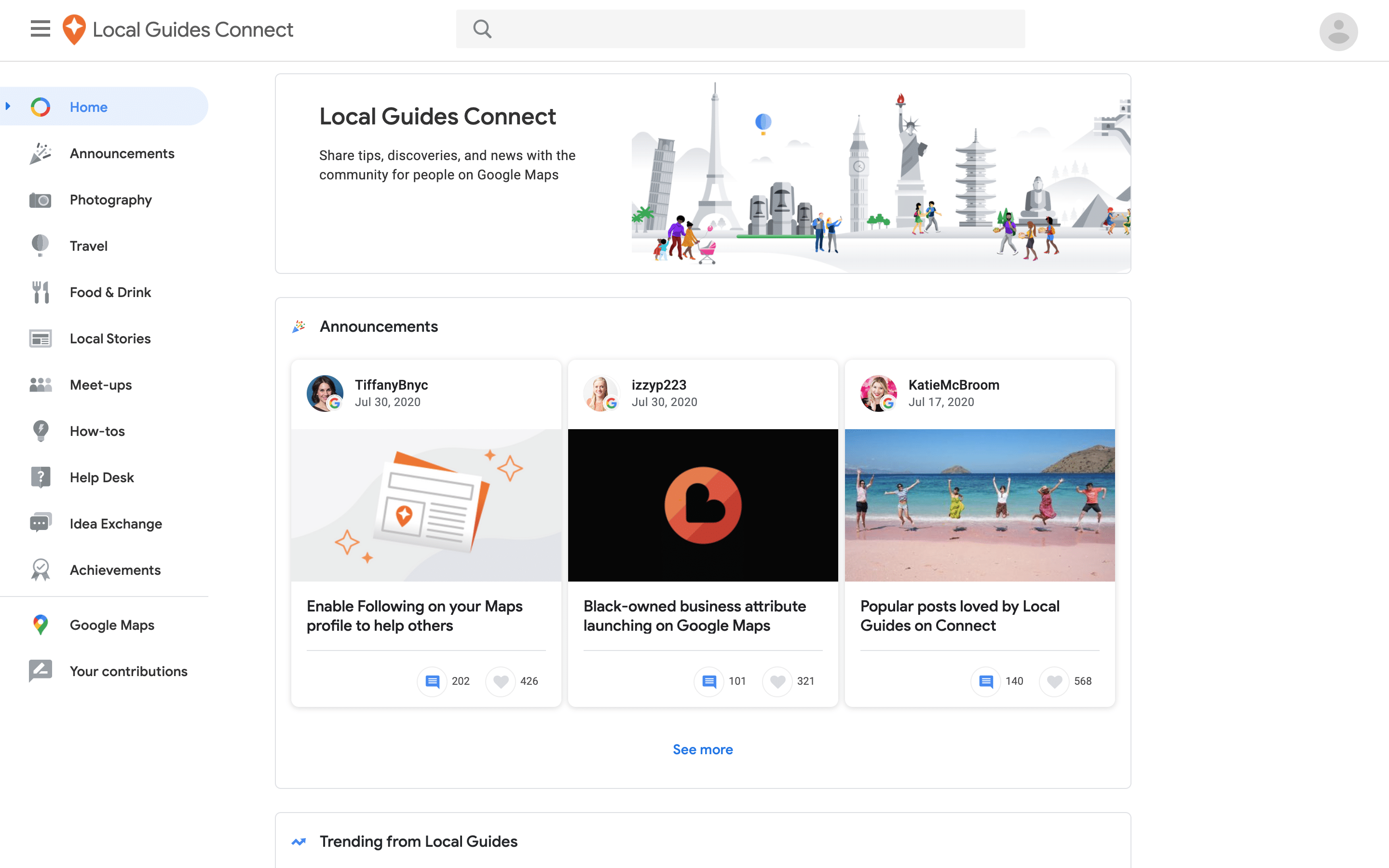
Local Guides Connect is the hub where the Local Guides program continues to chug along.
This mighty little community is as active as ever despite the challenges of the pandemic. Local Guides can participate in the community where moderators share update announcements on the program, tips to enrich Google Maps, support small businesses and Black owned businesses, and how you can take the real world virtual.
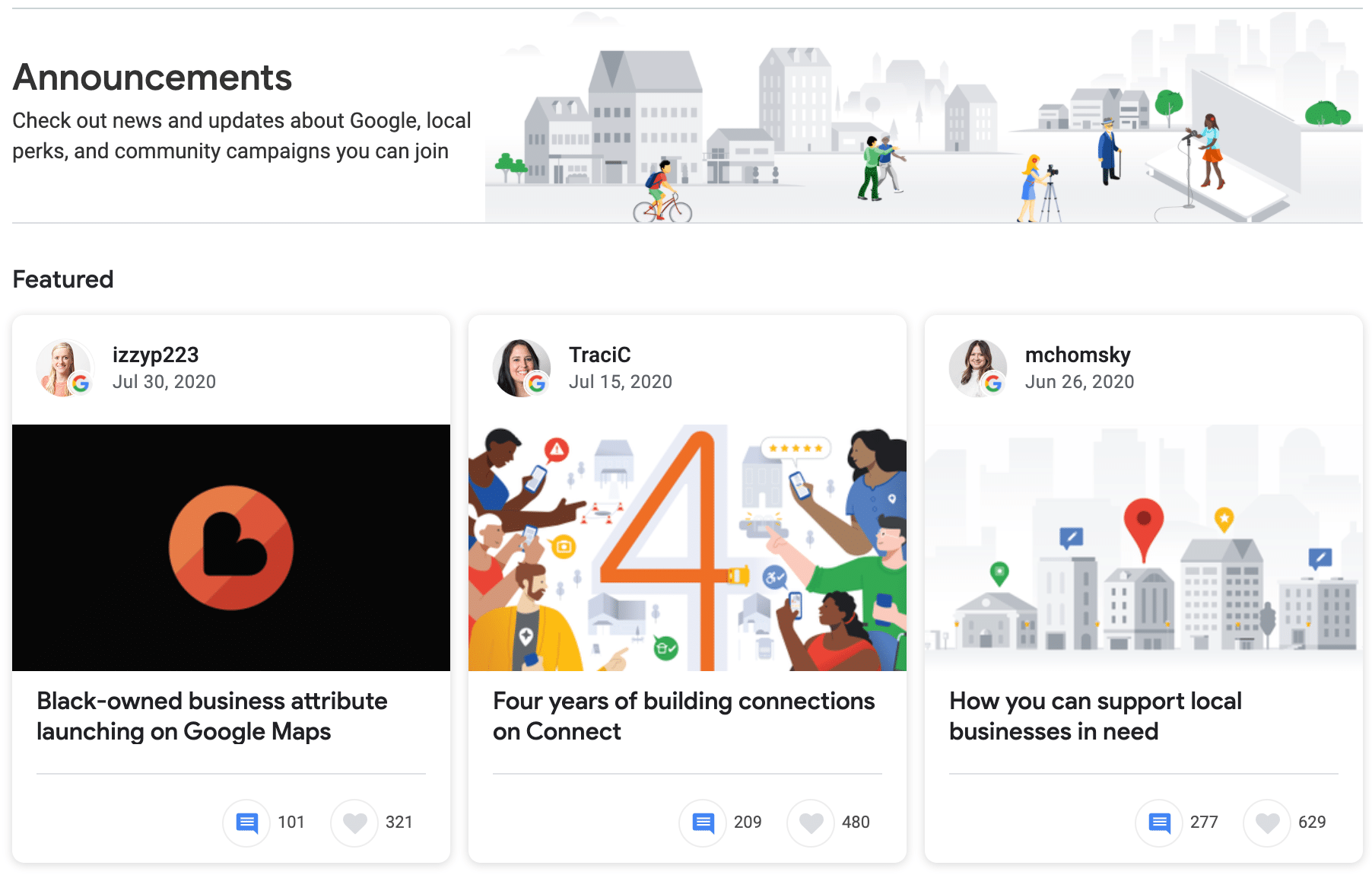
Organizing Local Guide Meetups
Meetups are a great way to get people in your community together, whether your goal is networking or just making new friends. Level 3 Guides are encouraged to organize their own meetup events. Here are some important meetup details from Google that you’ll need to keep in mind:
Meetup tips
Meetup expenses
Google will not provide funding, collateral, or other types of incentives for these events. Meetups can be low cost or even free — simply grab your phone and explore your city on foot.
Local Guides Connect requirement
You must be signed up for Local Guides Connect to submit a meetup. If your meetup is approved, a post in Local Guides Connect will be automatically generated so that you can share updates with attendees.
Meetup submission process
We will review your meetup within one week, so we encourage you to submit your meetup as early as possible. We will notify you when your meetup has been approved or rejected. If approved, we will add it to the list of upcoming meetups. Note that we may edit your meetup description before publishing. If rejected, we will let you know why and you will be able to submit a new meetup for us to review.
Meetup approvals
We approve meetups that involve bringing a community of Local Guides together. We reject meetups that are unrelated to Local Guides.
Make changes to your meetup
For now, you will not be able to make changes to your meetup once it’s been submitted. We recommend posting any updates to the Local Guides Connect post that will be auto-generated after your meetup has been approved.
Cancel your meetup
You can cancel your meetup by visiting your event page and clicking the “Cancel my meetup” button. Communicate with attendees.
After your meetup is approved, we will send you a link to an auto-generated post on Local Guides Connect where you and your meetup attendees can get in touch. You will also be able to send up to three email announcements to attendees. Visit your approved meetup page to learn more.
Meetup promotion
If approved, we will add it to the list of upcoming meetups. We may also feature select meetups on our social media channels (Facebook, Twitter) and in our newsletter. We also encourage you to promote your meetup via your own social media channels and in your local community using #LocalGuides.
After your meetup
After your meetup, thank your attendees for joining. Create a Google Photos album and share it with attendees so they can add their own photos.
We’d love to hear about your meetup. Share your photos and recap on Local Guides Connect and complete this short survey to tell us how it went.
Other event platforms
You may use other event platforms to create your meetup, but we will only promote and share meetups that have been created on our meetup platform.
Using the Local Guides logo
The Local Guides logo is a Google brand identity and is reserved for official use only. Do not use the Local Guides logo, pin, or any other Google imagery in your meetup materials.
Meetups in the age of COVID
Here’s another important point about meetups. The pandemic has changed life for most of us, events with groups of people may create a risk for some of us. You’ll want to ensure that you’re compliant with any/all COVID related laws and mandates in your area. These details will vary based on your location so you’ll need to verify that you’re on top of that.
If you’re not able to run an in-person meetup, you may be able to create a virtual meetup. Here’s a list of providers you can use to run your meetup virtually.
In general, it’s a good idea to err on the side of caution. Use masks, social distancing, and hand sanitizer liberally to provide attendees with the safety and comfort they need to ensure your meetup is a success.
Takeaways for Google Local Guides
You don’t need to be a local search expert to join Google’s Local Guides program; there are a variety of ways to engage the local community and network with prospective clients.
Google provides a variety of resources to help Local Guides like yourself get the word out and make the meetups a fun experience for everyone who shows up.
Additionally, just the practice of uploading reviews, pictures, and business information will help us keep ourselves up to date on local search related features and practices.
If you have a Google account, you have the opportunity to contribute to Google Maps directly. Use the Local Guides program to serve those in your neighborhood and your community. Use it to get your foot in the door with prospective clients who desperately need your help.
Gamify local search, and you’ll find Google Maps produces the unexpected benefits your agency needs and the neighborhood expert your community deserves.

